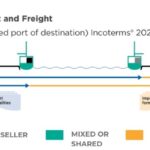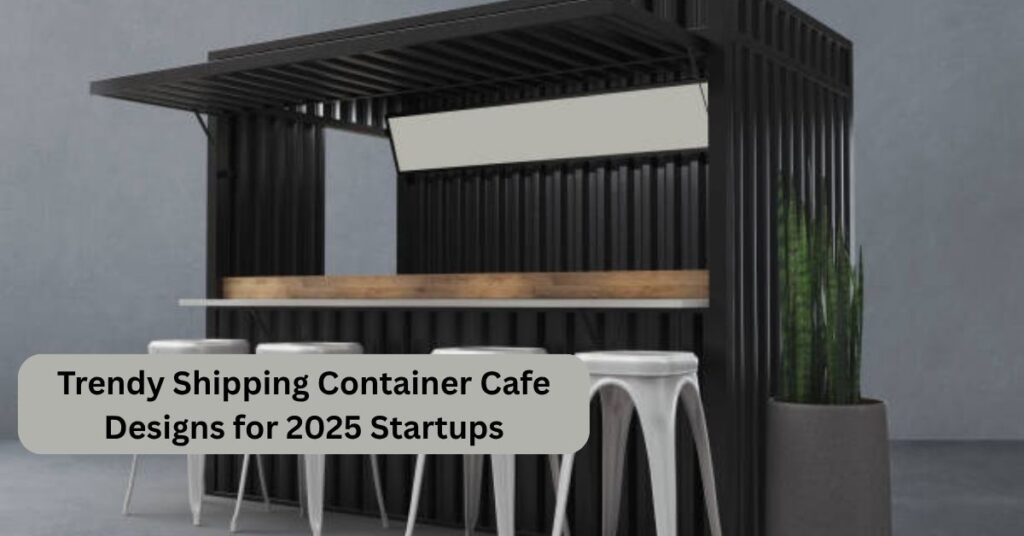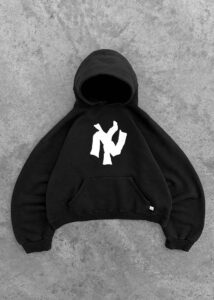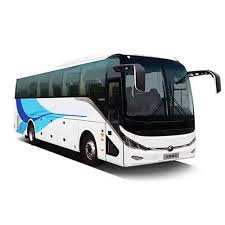Introduction: A Fresh Take on Cafe Design
In 2025, the world of entrepreneurship is embracing unconventional solutions to meet modern-day business goals. One of the most captivating trends gaining momentum is the shipping container cafe. Compact, sustainable, and visually appealing, these converted structures are reshaping how cafes operate, especially among startups looking for cost-efficient yet stylish business spaces. From bustling city corners to quiet beachfronts, these modular units offer flexibility and innovation without compromising quality or experience.
Why Startups Are Turning to Shipping Container Cafes
For new business owners, capital investment is a constant concern. A shipping container cafe offers a practical solution, allowing owners to launch their venture at a fraction of the cost of traditional brick-and-mortar cafes. Startups benefit from:
- Lower initial construction costs
- Mobility and flexibility
- Shorter build times
- Sustainability appeal to eco-conscious consumers
Additionally, with the growing popularity of container conversion in UAE and other parts of the world, local support for building regulations and technical assistance is increasingly available, making this trend both viable and accessible.
Design Trends Dominating 2025
Innovative design lies at the heart of every successful container cafe. In 2025, aesthetics and function go hand in hand, with several key trends making waves.
1. Industrial-Chic Interiors
Exposed metal, polished concrete floors, and neutral palettes are defining the interiors of the modern container cafe. This minimalist approach enhances space while offering a clean and contemporary ambiance.
2. Open-Air Concepts
Designs featuring large glass panels or retractable doors offer an indoor-outdoor dining experience. This is particularly useful in warm climates or for cafes located near beaches, parks, or urban promenades.
3. Vertical Greenery
Incorporating plants and vertical gardens adds life to the limited space. It also aligns with sustainability goals, creating an eco-friendly vibe that resonates with modern consumers.
4. Smart Cafe Integration
From automated lighting to remote-order systems, tech integrations are elevating container cafes. Compact designs allow for seamless integration of POS systems, app-based menus, and smart kitchen tools.
Strategic Use of Limited Space
Efficient space utilization is critical. Unlike conventional cafes, a shipping container typically operates within 160 to 320 square feet. Designers in 2025 are adopting multi-functional furniture, collapsible counters, and ceiling-mounted storage units to maximize usable space. Seating arrangements are often external or minimalistic inside, depending on the target audience and location.
Outdoor patios and rooftop seating are creative extensions that enhance capacity without expanding the container footprint. This also contributes to improved customer experience without overloading the small interior.
Sustainability at the Core
Eco-friendliness continues to be a major driver in consumer decision-making. The reuse of materials and reduced construction footprint give container cafes a natural edge. Solar panels, water recycling systems, and energy-efficient lighting are being incorporated into most 2025 designs. This not only supports environmental responsibility but also reduces long-term operational costs.
In regions like the UAE, where the container conversion sector is advancing rapidly, these sustainable elements are integrated as standard practice. Startup founders are leveraging these frameworks to build cafes that reflect both modernity and responsibility.
Mobility and Pop-Up Potential
Another notable trend in 2025 is the use of container cafes for mobile or seasonal operations. A fully functional container cafe can be transported between events, markets, or high-footfall zones depending on demand. This adaptability is particularly useful for festivals, beach towns during summer, or city plazas during winter holidays.
Some entrepreneurs are even running trial launches in multiple locations before settling on a permanent spot — a concept made possible only by container mobility.
Permits, Zoning, and Local Regulations
While shipping container are modular and compact, they still require adherence to local building codes, health permits, and zoning regulations. In the UAE and similar regions with progressive infrastructure policies, container conversion projects are becoming increasingly streamlined.
Startup owners must ensure their container cafes meet structural standards, fire safety norms, and accessibility regulations. This planning phase is critical and typically determines the project’s long-term success.
Branding and Visual Identity
The exterior of a shipping container offers a blank canvas for creative expression. Bold murals, custom paintwork, and eye-catching signage help these cafes stand out in crowded areas. In 2025, there’s a strong trend toward incorporating local art and cultural elements into container design.
When done right, the container itself becomes a marketing tool — visually compelling and shareable across social media platforms. This form of organic promotion can significantly boost visibility and customer engagement.
Energy Efficiency and Climate Adaptation
In hot climates such as the UAE, temperature control within a metal container can be a challenge. Insulation is therefore a key component in 2025 design practices. Startups are investing in high-efficiency HVAC systems, thermal paints, and eco-friendly insulation materials to maintain comfort without excessive energy consumption.
These adaptations not only improve customer experience but also make operations more sustainable and cost-effective.
Collaborative Spaces and Hybrid Concepts
Container cafes are increasingly being designed as part of hybrid business models. A popular trend includes co-working spaces combined with cafes, or retail boutiques sharing space with coffee counters. This dual-purpose strategy attracts diverse audiences and improves revenue streams.
For instance, a startup might launch a container cafe with rotating art exhibitions or book readings, transforming the cafe into a cultural hub. The modular nature of shipping containers supports these adaptations easily.
Container Conversion in the UAE: A Growing Trend
In the UAE, container conversion is gaining popularity not only for cafes but across multiple industries including retail, offices, and wellness spaces. This growth has created a favorable environment for startup cafes utilizing container models.
Local expertise in modular construction, government incentives for sustainable builds, and availability of conversion materials are accelerating this trend. The container conversion UAE movement is fostering a thriving ecosystem where such cafes can emerge with lower barriers to entry and high market demand.
Key Considerations for Future Cafe Owners
Before investing in a cafe, startups must consider:
- Location feasibility and foot traffic potential
- Utility connections and operational logistics
- Weather-proofing and thermal regulation
- Compliance with regional health and building standards
- Future scalability and design flexibility
These considerations ensure the cafe is not just a trendy project, but a long-term success.
Conclusion: A Smart Move for Modern Entrepreneurs
The shipping container cafe is more than a design trend — it’s a forward-thinking business model that merges sustainability, affordability, and creativity. As 2025 unfolds, startups seeking innovative entry points into the cafe industry will find container-based models highly appealing.
With global interest in container conversion, especially in locations like the UAE, aspiring cafe owners are equipped with the tools and resources needed to build unique, efficient, and community-friendly spaces. The trend is no longer emerging — it’s here to stay and evolve with the times.
- Trendy Shipping Container Cafe Designs for 2025 Entrepreneurs
- Discover innovative and space-saving shipping container cafe designs perfect for 2025 startups seeking style, sustainability, and affordable setup options.
- shipping container cafe
Related posts:
 The Power Shift: How AI Democratization is Redefining Access and Opportunity
The Power Shift: How AI Democratization is Redefining Access and Opportunity
 Maximize Uptime & Security with Houston’s Managed IT Services
Maximize Uptime & Security with Houston’s Managed IT Services
 CIF Meaning in Shipping Explained: Cost, Insurance, and Freight
CIF Meaning in Shipping Explained: Cost, Insurance, and Freight
 Why Paystub Generator Free Tools Are Gaining Popularity in 2025
Why Paystub Generator Free Tools Are Gaining Popularity in 2025
 Mastering ChatGPT Online: Tips, Tricks, and Best Practices for 2025
Mastering ChatGPT Online: Tips, Tricks, and Best Practices for 2025
 QuickBooks Payroll Error 17337: Solutions You Need Now QuickBooks
QuickBooks Payroll Error 17337: Solutions You Need Now QuickBooks
 From Livestreams to Global Clips: How QQAI.ai Is Turning AI Video Editing into a Worldwide Opportunity
From Livestreams to Global Clips: How QQAI.ai Is Turning AI Video Editing into a Worldwide Opportunity
 Explore Latest Tech Trends in Shower Screen Sydney Glass Designs
Explore Latest Tech Trends in Shower Screen Sydney Glass Designs








